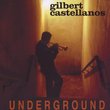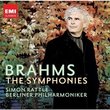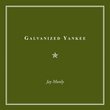| All Artists: George Frideric Handel, Emmanuelle Haim, Le Concert d'Astree, Natalie Dessay, Sonia Prina, Ann Hallenberg, Pavol Breslik, Patrick Beaugiraud, Astushi Sakai Title: Handel - Il trionfo del Tempo e del Disinganno Members Wishing: 1 Total Copies: 0 Label: Virgin Classics Original Release Date: 1/1/2007 Re-Release Date: 5/8/2007 Genre: Classical Styles: Opera & Classical Vocal, Chamber Music, Historical Periods, Baroque (c.1600-1750), Classical (c.1770-1830) Number of Discs: 2 SwapaCD Credits: 2 UPC: 094636342825 |
Search - George Frideric Handel, Emmanuelle Haim, Le Concert d'Astree :: Handel - Il trionfo del Tempo e del Disinganno
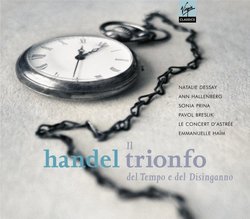 | George Frideric Handel, Emmanuelle Haim, Le Concert d'Astree Handel - Il trionfo del Tempo e del Disinganno Genre: Classical
DESSAY*NATALIE (SOP) HAIM/LE CONCERT D'ASTREE |
Larger Image |
CD DetailsSynopsis
Product Description DESSAY*NATALIE (SOP) HAIM/LE CONCERT D'ASTREE Similar CDs
|
CD ReviewsNot as good as I hoped G. Rodger | Milwaukee WI USA | 09/05/2007 (3 out of 5 stars) "While Dessay gives a lovely performance as Bellezza, and Hallenberg is fine as Piacere, the tenor and alto absolutely do not. The tenor bottoms out on a number of occasions, and while I love Sonia Prina in other recordings, she is not really a true alto. She also hits bottom, and on the occasions that Tempo and Disinganno are paired the voices fail completely to match. Such a pity. Tempos are too variable for me--the fast is a little fast at times and the slow drags and is missing energy. Such a disappointment. I bought this mostly because I was interested to see what Prina would make of this role, but I much prefer the older Minkowski recording with Nathalie Stutzmann, a true alto, as Disinganno and John Elwes as Tempo. The voices of these singers match so closely in their duet Il pianto dell'aurora that it is difficult to tell which singer is which--their unisons are exquisite. Prina and Breslik on the same piece do not work at all well. She is not only out-matched but the unisons barely sound.--she is much more comfortable at the octave. Prina does not sound good here, a severe disappointment after her fabulous performance as Megacle on the Naive recording of Vivaldi's L'Olympiade. I thought she had bottom notes, but alas no. The quartet at the end of the first disc is also incredibly disappointing. There is no energy here. And this despite some, at times, overly prolific ornamentation from all of these singers in earlier tracks. The second quartet is better but is too fast and the interplay of the vocal lines is lost in the rush, particularly the relationship between the alto and tenor. Prina is completely overwhelmed in this quartet and can barely be heard--hard in this context to believe that Disinganno could possibly triumph by the end of this. The Minkowski disc is long out of print now, and very hard to get. It took me a good year to track one down on ebay, but it was well worth the wait and if I had to recommend a recording I'd still choose Minkowski over all others. I don't know the Alessandrini recording but am generally not a huge fan of Mingardo (my own quirkiness, I'm sure, but I'm just not crazy about her voice, especially at the bottom of her range, which also promises much but fails to deliver)." A Triumph for Haim, Dessay, Hallenberg, Prina, Breslik & le cnomad | USA | 08/02/2007 (5 out of 5 stars) "This early allegorical oratorio (written by Georg Frideric Händel at a mere 22 while on an Italian sojourn) already shows the inventiveness of this genius (and one can understand why the composer cannibalised the work for his later compositions). The libretto is no more than a poetic and moralistic conversation among its four allegorical personae, all individually characterised by the singers all armed with marvellous technique and emotional expression: Bellezza/Beauty (French soprano Natalie Dessay) is fought over by Piacere/Pleasure (Swedish mezzo-soprano Ann Hallenberg) on one side, keeping her enticed with the joys of present "superficial" and pleasurable pursuits, and Enlightenment/Disinganno (Italian contralto Sonia Prina) and Tempo/Time (Slovakian tenor Pavol Breslik) on the other. Of course, the libretto having been written by Händel's pal, the Cardinal, Benedetto Pamphili, it's inevitable that the "virtuous" personae of Enlightenment and Time will win in the end, and Beauty agrees to take on the hairshirt and do penance for enjoying life too much. And yet, the irony of it all is that the very music Händel wrote for this oratorio will bring such pleasures to its hearers and would likely draw the disapproval of Time and Enlightenment for its "corrupting" beauty! The work is performed with spirit and verve as well as sensitivity by the singers, guided by Baroque conductor Emmanuelle Haïm directing her Le Concert d'Astrée playing on period instruments. Although her over-bright soprano took some getting used to by me, Dessay becomes simply delightful in her very many arias (about nine of them, by my last count), with coloratura passages as in "Un pensiero nemico di piace", "Della vita mortale" and "Un schiera di Piacere", all joyfully rendered and proving of little difficulty for her agile technique. Hallenberg gets to deploy her magnificent, incandescent mezzo in the work's most beautiful and famous arias, including the exquisitely languourous "Lascia la spina", the courtly "Un leggiadro giovinetto", and the furious "Tu giurasti di mai non lasciarmi" and "Come nombe che fugge col vento." Prina brings a measure of majesty to arias like "Più non cura" and "Crede l'uom chegli riposi", entrancing you with her dark, smooth and warm alto, with some impressive virtuosic runs in the middle of the latter aria. Finally, Breslik holds his own among the women as the authoritative and father-like chastising figure of Tempo, with his expressive and textured vocal that's hard to ignore, as in his affecting "Urne voi". On the ensemble pieces, the singers all blend together superbly, and one can get a taste of that excitement in the YouTube music video featuring the quartet singing the exhilarating "Voglio Tempo". Additionally, director Haïm plays a mean organ on several tracks, with excellent sonata-like passages on "Taci: Qual sono ascolto?" and "Un leggiadro giovinetto". She's actually made this organ-leery listener more appreciative of that instrument. This is a most welcome addition to the growing recorded Händel repertoire, and one highly recommended to anyone already a Händel fan, or one just starting to learn about the Baroque master's works. " Choose Alessandrini's Recording Instead Paul Van de Water | Virginia, USA | 09/03/2007 (3 out of 5 stars) ""Il Trionfo del Tempo e del Disinganno" (The Triumph of Time and Dis-Illusion) is often called Handel's first oratorio, although it is more a large-scale Italian cantata or serenata, like "Aci, Galatea, e Polifemo" or "Apollo e Dafne." Handel wrote this, the original, version of the work during his formative stay in Italy in 1707.
Gramophone's reviewer (July 2007) says that this performance might seem "fabulous . . . for a casual listener." However, its "fizzy flamboyance" comes across as "artificial eccentricity," and the conductor's "mannerisms prevent natural flow and continuity." Preferable is the August 2007 reissue of Renato Alessandrini recording on Naive--especially at its two-disc-for-one bargain price Haendel: Il Trionfo del Tempo e del Disinganno. Read my review of Alessandrini's performance for information about Handel's other two versions of this work. Paul N. Van de Water" |

 Track Listings (27) - Disc #1
Track Listings (27) - Disc #1

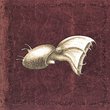
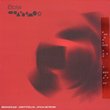
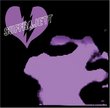

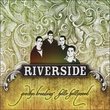




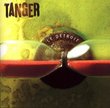
![Ravel: Daphnis et Chloé Suites; Ma Mère l'Oye; Valses nobles et sentimentales [Hybrid SACD]](https://nationalbookswap.com/cd//m/71/4471/6124471.jpg)
